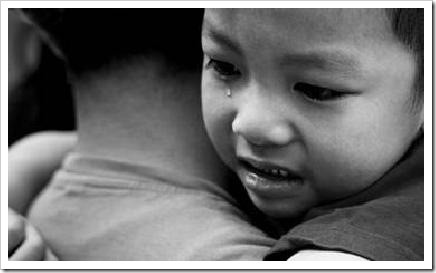
When I decided to write the post, after many requests, I was not sure if I should call it “5 Common Parenting Mistakes”. You see, calling something a mistake is a form of judgment, like saying there is a right way to do something.
But I do not believe there is a right way. I think there are many ways and they need to suit the person who implements them.
When I studied my Special Education degree, I learned hundreds, if not thousands, of education and psychology theories. It may sound surprising to you, but some of them were in contradiction with others.
For me, what we needed to do was to examine each of them and adopt the ones that match our personality, our goals and our desires. This is why no two teachers are the same and no two parents are the same (and I think this is good).
So, please, when you read about the common parenting mistakes below, bear in mind that they are what I consider mistakes. I do not believe any parent does anything on purpose to hurt their kids.
On the contrary. I believe all parents do the best they can. The purpose of my entire blog is to bring you information and help you make new choices where the ones you have made thus far have not worked for you.
Mistake No. 1: Reacting to Behaviour

When something happens, we tend to create a scenario in our head to figure out the reasons for the behaviour of others. With kids, this immediate and natural tendency could backfire on you. If your kids fight, whether you like it or not, you make a judgment of the situation within a split second. You look at their body language and their words, add some of your filters and life experiences and react to that.
Most of the time, you do not react to what happens right then and there because people are unable to erase their beliefs, thoughts, emotions and fears and be in the moment. A big parenting mistake is jumping to conclusions and reacting to the inappropriate behaviour instead of finding the source.
Many of them ask in anger “Why did you do that?” when in fact they do not really want to know the reason and they are just using this expression to show they are not happy.
Solution No. 1: Aim for a Good Feeling
When you see inappropriate behaviour, first stop it by getting your kids’ attention. If necessary, touch them or hug them. Get down to their eye level and ask “What’s happening?” to get the kids’ point of view of the situation.

Keep calm and ask questions that will move them forward, like “What do you want to do now?”, “What do you think will happen next time?”, “What would make you feel better right now?” or “What do you want?”
Mistake No. 2: Confusing Actions with Identity
When parents are upset, they say things about their kids that do not separate behaviour from the identity. This is natural when you are angry, but not very helpful in managing behaviour. Parents say things like “You are lazy”, “You are not helpful” and “You are disrespectful”.
Whenever you use “you are”, you refer to the kid’s identity and not to their behaviour. The kid is not lazy. You interpreted what they did as an act of laziness. Kids are neither helpful nor unhelpful, but their acts are. Similarly, there is no such thing as a disrespectful child, only an interpretation of their actions as disrespectful.
Solution No. 2: Undesirable Actions are Done by Good Kids
As a parent, I recommend that you help your child weed out undesirable habits, while building a positive self image.
Tell your kids that you were not happy what they have done. Say “I know this may be hard to do, but after a while, it will be easier”, “I want you to help me with this” and “I find this behaviour disrespectful”.
Stay away from using the words “you are”, unless you are saying positive things, like “You are a wonderful friend”, “You are a talented musician” and “You are a great kid”. Separate the behaviour from the identity.
Mistake No. 3: Expecting Kids to Understand Time
 Many parents complain about their kids not listening to them. The kids play, the parents say “We are going home” and the crying starts. Alternatively, when the parents call the kids to dinner, they do not come.
Many parents complain about their kids not listening to them. The kids play, the parents say “We are going home” and the crying starts. Alternatively, when the parents call the kids to dinner, they do not come.
The difficulty here is with the parents’ expectation that kids will drop everything they are doing and do what they have been asked to do. Kids do not have a good perception of time and they need help.
Solution No. 3: Help Your Kids Develop a Feeling of Time
Tell your kids 10 minutes before something needs to be done. Say “We are leaving in 10 minutes”, “Dinner will be ready in 10 minutes” and “We are going to bed in 10 minutes”. Come back from time to time and tell them “We are leaving in 5 minutes” and so on. When the time comes to leave or eat, stick to it.
After a while, your kids will understand what 10 minutes means and in their head they will “say goodbye” to what they are doing without the tantrums and the crying. In class, teachers who use this technique have fewer behaviour management issues.
Mistake No. 4: Pushing Harder in Conflict
Again, a natural but ineffective parenting choice is to push harder when things do not work the way you want them to work. If you want to understand why this is ineffective, play this game with your kid: hold out your hand and ask your child to push their hand against yours.
 Push slightly and notice that your kid pushes back. Push harder and notice they push harder against you.
Push slightly and notice that your kid pushes back. Push harder and notice they push harder against you.
Pushing only brings conflicts. Parenting is not about showing kids who is the boss, it is more like sharing a ride together with the parents’ help.
Solution No. 4: Trying a Creative Way to Resolve Conflict
Back in the hand game, bring your hand backwards slowly. Your child will follow, keeping their hand touching yours. Move your hand around and you will see that you can guide your child’s hand like this, and even push it slightly, once you have established trust.
When you feel you need to explain that you are the boss, realise that this is a reaction to losing control. Power comes from within, from your conviction in your approach.
If you believe in something strongly enough, you do not have to say it. Your kids will be able to read it in your behaviour. When there is a conflict, the solution will not come from your power, but from your creativity and insight.
Mistake No. 5: Expecting Kids to Ignore Examples and Follow Rules
 One of the difficulties in parenting is telling kids “Do as I say, not as I do” and feeling dishonest with them. It is unreasonable to expect your kids to do stop mimicking you, especially when they see you do the same things repeatedly.
One of the difficulties in parenting is telling kids “Do as I say, not as I do” and feeling dishonest with them. It is unreasonable to expect your kids to do stop mimicking you, especially when they see you do the same things repeatedly.
For example, many parents tell their teens not to smoke, while smoking themselves. Others tell them not to use drugs, yet they use drugs themselves (“oh, that’s nothing, it’s only a small joint”). This creates distrust between the parents and the kids and confuses the kids.
Solution No. 5: Be The Change You Want to See
When you consider your expectations from your kids, ask yourself “Am I living by my own rules?” or “Was it reasonable to expect the same from me when I was their age?”
Remember, it is not about what you say but what you do. If you cannot follow your own rule, do not say anything about it and try to sort it out with yourself before expressing your expectations to your kids. This will also give you the tools to help them change their habits.
Be the change you want to see in the world
Mahatma Ghandi
Remember, raising happy kids can be done easily by happy parents.
Happy parenting,
Ronit











